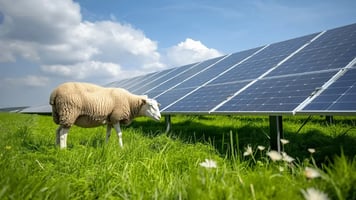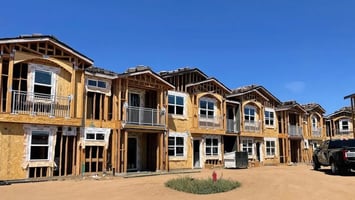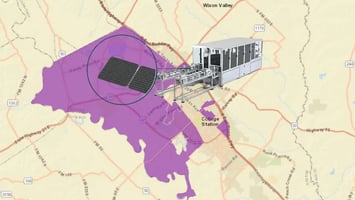The renewable energy sector, particularly solar energy, has experienced exponential growth over the...
International Investing: A Growing Alternative
Investing internationally has gained momentum in recent years, with this trend intensifying in the last few months.
If the US dollar index continues its decline, the case for a shift to international investing may increase. Federal government policy decisions may also contribute to a change.

Home Country Investing Bias
A May 2025 article by Schwab points to a home bias in equity investing. Investors around the world hold mostly domestic investments.
U.S. investors allocate about 75% of their equity holdings to domestic investments, which is significantly higher than the U.S. share of the global equity market.
International Investing Opportunities in Renewable Energy
Accredited investors seeking alternative equity investment opportunities in low-carbon energy projects now have more options outside the United States.
While continuing to keep a majority of their investments domestically, investors can diversify beyond US borders. Here are three emerging markets.
Chile
According to BloombergNEF, Chile attracted around $16 billion of clean energy investment between 2017 and 2022.
Chile has set a goal to convert 70% of its total energy consumption to renewable sources by 2030 and has pledged to become carbon neutral by 2050.
While Chile is institutionally stable, social tensions persist (manifested in recurring protests), and political discourse has become more polarized during the 2025 election year.
The Philippines
The Philippines has implemented policies to phase out coal and boost renewable energy, with a significant solar and wind project pipeline.
The country's renewable energy market is growing, supported by foreign investment and clear regulatory frameworks.
According to the Philippines' Clean Energy Scenario, the country aims for a 35% clean energy share by 2030 and 50% by 2040. By 2040, the country seeks to have a total of 52.8 GW of renewable energy sources.
Costa Rica
Since the establishment of the Costa Rican Institute of Electricity in 1949, Costa Rica has consistently demonstrated a strong commitment to environmental sustainability, with 94% of its energy generated from low-carbon sources as of 2024.
To support future goals, the government provides incentives for investments in renewable energy projects, such as tax exemptions on imported equipment for renewable energy production (e.g., solar panels and wind turbines).
The government is continuing to invest in diverse clean energy sources, including hydroelectric, wind, solar, and geothermal power.
Despite a general home country bias in investing, emerging markets such as Chile, the Philippines, and Costa Rica may attract more US investor capital if renewable energy incentives become relatively stronger internationally.
If you would like to discuss upcoming investing opportunities, both domestic and international, please schedule a meeting with me.
Charles Schaffer
President and Founder, Accredica
Charles has founded and operated several development companies over his 35+ year history to pursue his passion for Alternative Investing. He believes outsized returns can be achieved without a corresponding increase in risk. Under Charles' leadership, Accredica has developed and financed over $160 million of commercial real estate and renewable energy projects.




